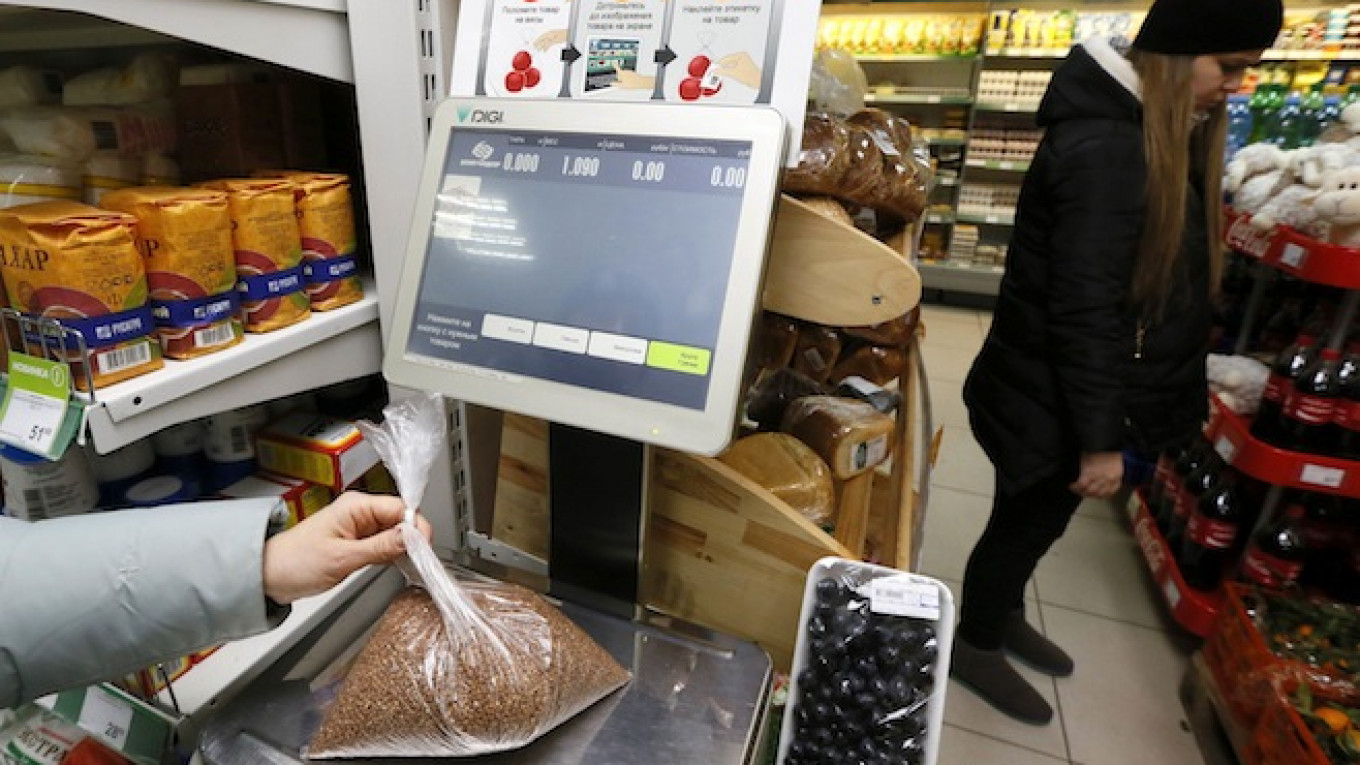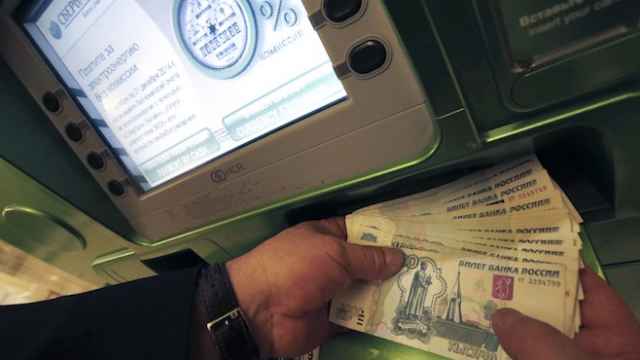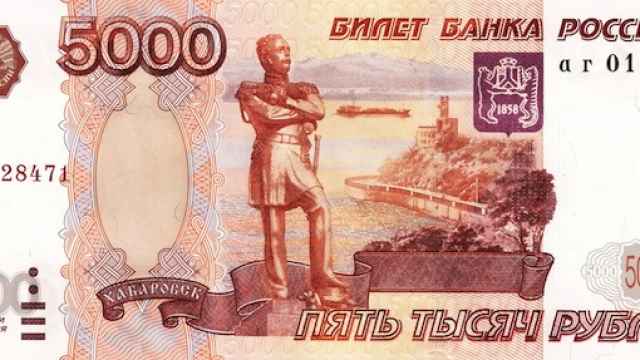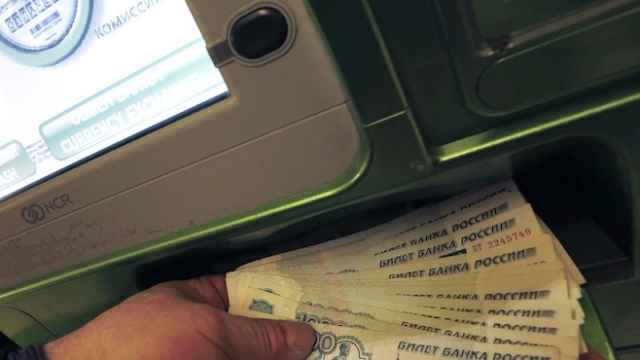Russians are split on whether to blame price rises, deteriorating quality of life and a worsening of Russia's economic health on Moscow's annexation of Crimea or on Western sanctions, a poll found, in a sign that economic woes could undermine support for President Vladimir Putin's policies.
Russia's economy is being roiled by shocks: The ruble plunged to historic lows against the U.S. dollar on Friday as the price of oil, Russia's key export, fell to $70 per barrel — its cheapest in four years.
Western sanctions on Moscow over the Ukraine crisis have helped push Russia's economy to the edge of recession, and inflation, prodded by the ruble's devaluation, has soared to nearly 9 percent.
In a survey by independent pollster Levada Center released to news agency Interfax on Friday, 80 percent of respondents said they had noticed price inflation, falling quality of life and problems in the wider economy.
But Russians are divided on what to blame. Forty-five of respondents said they were a result of falling oil prices; 33 percent said Western sanctions were to blame; while another 30 percent pinned responsibility on the cost of Russia's annexation of Crimea.
Moscow has pledged over 600 billion rubles ($13 billion) from the federal budget to the Black Sea peninsula to rebuild decaying infrastructure and integrate the region into the greater Russian economy by 2020 — spending it can ill afford.
Twenty-six percent of respondents said corruption in government and problems such as failure to reform the backward Soviet industrial base were behind the economy's sorry state.
President Vladimir Putin's rating has risen above 80 percent on the back of Russia's interventions in Ukraine. But while Russians may applaud their country's successes in great-power politics, Putin's key achievement has been to preside over a period of rapidly increasing national wealth.
Such growth will now be difficult to achieve, as sanctions drain the economy of money and cheaper oil deprives it of revenue. In August, real wages in Russia fell for the first time since the crisis of 2009.
On the topic of Western sanctions and their impact on daily life, 50 percent of respondents said they had not caused them any trouble; 31 percent said that they had not experienced “serious difficulties,” and only 16 percent reported having major problems.
The survey was conducted on Nov. 14 to 17. It polled 1,600 people in 134 cities across Russia.
Contact the author at [email protected]
A Message from The Moscow Times:
Dear readers,
We are facing unprecedented challenges. Russia's Prosecutor General's Office has designated The Moscow Times as an "undesirable" organization, criminalizing our work and putting our staff at risk of prosecution. This follows our earlier unjust labeling as a "foreign agent."
These actions are direct attempts to silence independent journalism in Russia. The authorities claim our work "discredits the decisions of the Russian leadership." We see things differently: we strive to provide accurate, unbiased reporting on Russia.
We, the journalists of The Moscow Times, refuse to be silenced. But to continue our work, we need your help.
Your support, no matter how small, makes a world of difference. If you can, please support us monthly starting from just $2. It's quick to set up, and every contribution makes a significant impact.
By supporting The Moscow Times, you're defending open, independent journalism in the face of repression. Thank you for standing with us.
Remind me later.






